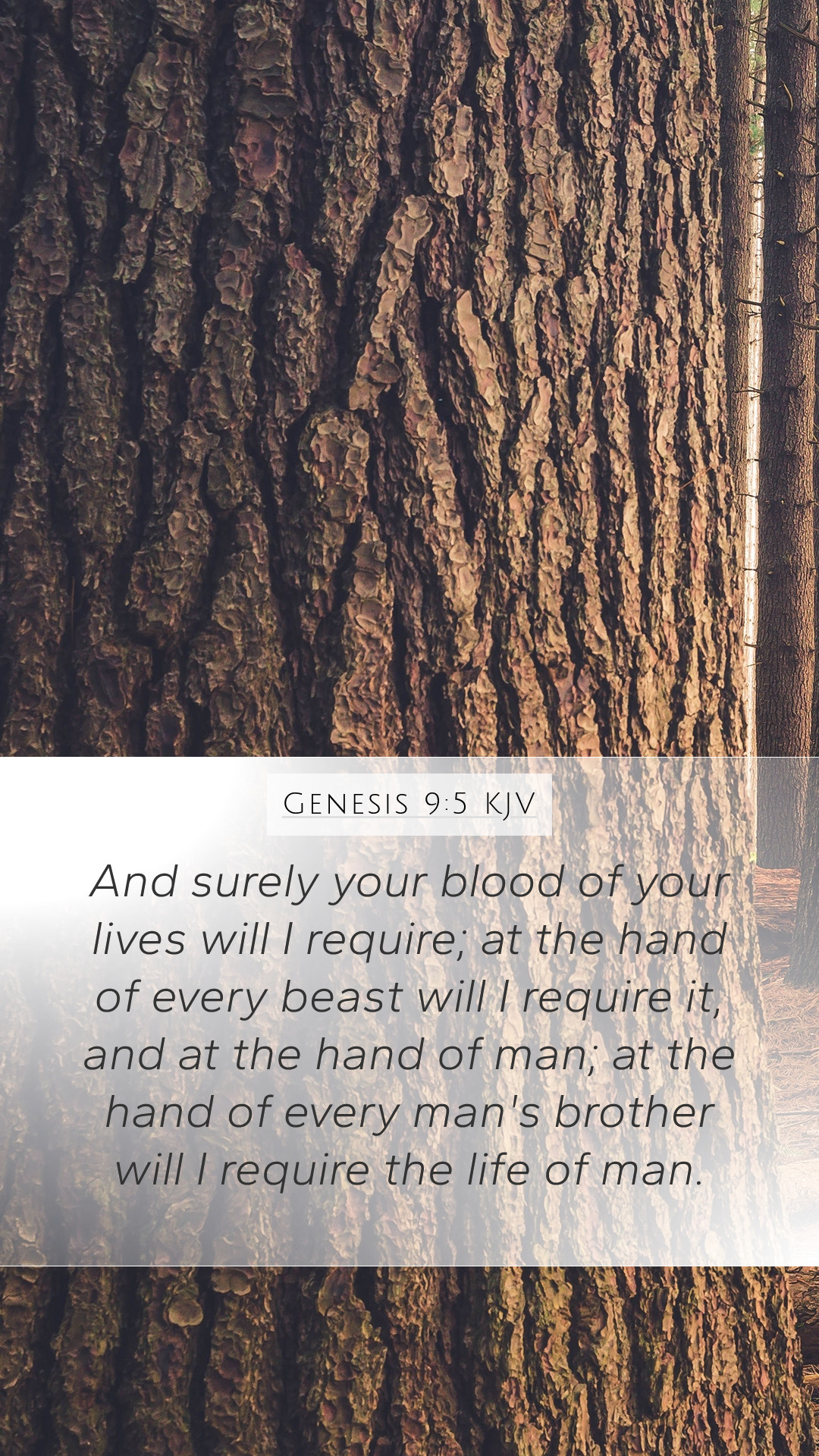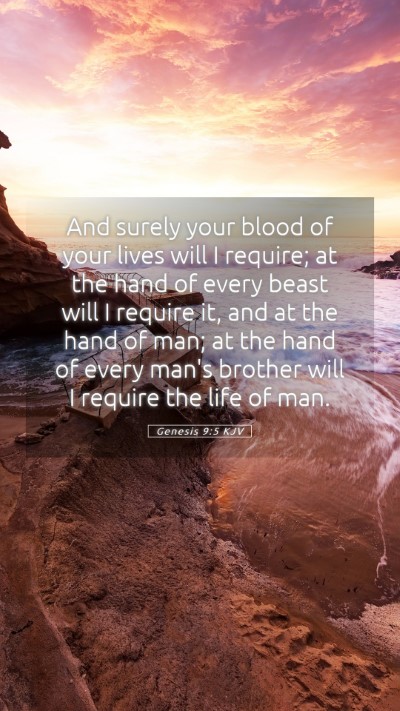Understanding Genesis 9:5
Genesis 9:5 states, "And surely your blood of your lives will I require; at the hand of every beast will I require it, and at the hand of man; at the hand of every man’s brother will I require the life of man." This verse is pivotal in establishing the sanctity of human life and the serious nature of bloodshed. It presents a God-given principle that underlines the importance of recognizing the divine image of God in every person, thus forming the basis for the laws concerning homicide and justice.
Bible Verse Meanings
This verse communicates profound truths regarding the responsibilities humans have toward one another and the implications of taking a life:
- Divine Justice: The phrase "will I require" emphasizes that God is the ultimate judge who holds every individual accountable for their actions, including murder.
- Sanctity of Life: The emphasis on blood signifies that life is sacred and given by God; therefore, to unjustly take a life is a grave offense against God Himself.
- Human Responsibility: The text encourages a sense of obligation to protect life and reminds us that harming others has consequences.
Bible Verse Interpretations
Matthew Henry’s commentary reflects on this verse by pointing out that God is establishing a moral framework within which humanity is to operate post-flood. His insight suggests that:
- The command serves as a deterrent against murder, providing a clear divine mandate for societal order.
- The severity of the demand ("at the hand of every beast") implies accountability even at the level of animals, which underscores the interconnectedness of life.
Albert Barnes adds that this verse sets forth the principle of retributive justice, indicating that the act of taking a life will not go unpunished, reiterating the need for a justice system among humanity.
Understanding Scripture
Adam Clarke emphasizes that this mandate is not merely for punishment but also a protective measure for humanity. He explores the idea that God desires to cultivate a culture of respect for life, which can be seen as a precursor to the Law given to the Israelites. Thus, human life holds a significant place in the moral order established by God.
Key Themes and Applications
- Accountability to God: Every individual must consider their actions and how they reflect their relationship with God and with others.
- Need for Justice: Societies must establish fair systems that uphold the sanctity of life and ensure that justice prevails for victims of violence.
- Reflection on Society’s Morality: This verse invites readers to assess the moral fabric of their communities and strive for a culture that values and protects human life.
Cross References
Genesis 9:5 connects with several other Bible verses that deal with similar themes:
- Exodus 20:13: "You shall not murder." — This verse reinforces the command against taking life unlawfully.
- Leviticus 24:17: "And if anyone takes a human life, he shall surely be put to death." — This depicts the legal ramifications within the Israelite community for those who commit murder.
- Matthew 5:21-22: Where Jesus expands on the commandment against murder by emphasizing anger and contempt as sin.
Conclusion
Genesis 9:5 captures the essence of the divine order concerning human life and justice. Through proper Bible verse commentary and engagement in Bible study insights, individuals can grasp the weighty implications of this verse and apply its teachings to their lives. Understanding Scripture allows believers to appreciate the sacredness of life and fosters a responsible, just, and respectful community.


